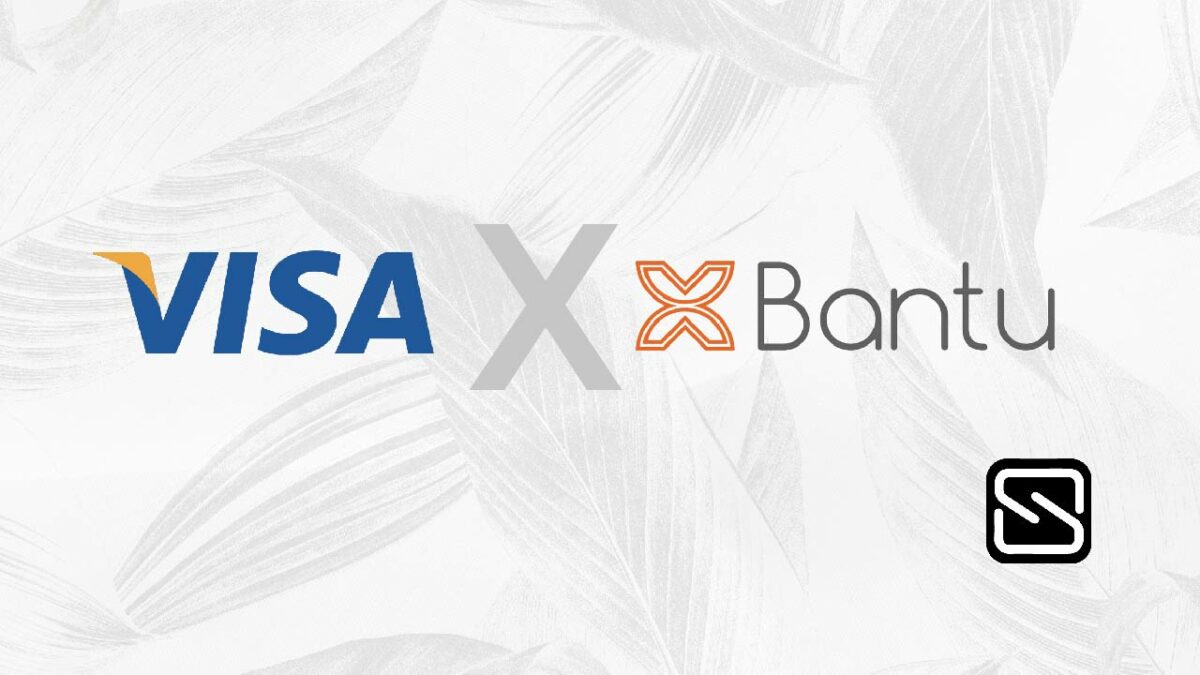Visa, the world’s largest digital payments company, is partnering with the Bantu Blockchain Foundation (Bantu), the guardians of the Bantu Blockchain Network infrastructure (Bantu Blockchain), to link its crypto-supporting Visa cards with the Bantu Network Utility Token (XBN) created by Bantu to enable quick and secure Bantu Blockchain trades. This connectivity is designed to directly encourage Africa’s gig economy by reducing inefficiencies and compatibility concerns that now exist when transferring money within the continent.
This partnership, which will be backed by a major Pan-African bank and a well-known Visa Banking Identification Number (BIN) Sponsor, will open up massive opportunities to boost economic activity across Africa, starting with Zambia, Nigeria, Ghana, Kenya, South Africa, the Democratic Republic of the Congo, Rwanda, and at least six other countries. Deals using any virtual currency issued on the Bantu Blockchain that uses Bantu’s XBN tokens are settled in 2-4 seconds with very low network fees.
To make the shift from digital assets to fiat easier, Visa will issue virtual cards in partnership with a BIN Sponsor Bank and a facilitator of the BantuPay wallet (the Bantu Blockchain network wallet). This means that anyone who has been validated by BantuPay will be able to use Visa cards that accept Bantu (XBN) tokens.
Along with the virtual card integration with the BantuPay wallet, Bantu plans to airdrop XBN tokens worth $1 billion over the next five years to aid financial literacy, new ventures, and career advancement opportunities at African academic institutions, as well as HBCUs (Historically Black Colleges and Universities) in Latin America and the United States, using Web3, decentralized applications (dApps), and other blockchain technology-based developments.
Visa has also secured an agreement with Bantu to start a Practical Money Skills initiative, which will teach important money management skills to at least 100,000 children every quarter.
“We believe that the proper technical tools and collaborations put to the right issue would have a large-good social effect, which is why we formed Bantu,” Victor Akoma-Philips, Bantu’s COO, said of the collaboration for social impact. This collaboration with Visa will help us establish a new Web3 social benefit model.”
Carl Manlan, Visa’s Head of Social Impact in CEMEA, stated;
“Visa thinks that having a better understanding of finances may help individuals administer their finances more effectively and enhance their living quality. We’re excited to work with Bantu to teach youngsters about personal financial basics like budgeting, saving, and shopping responsibly.”
Bantu has also joined Visa’s Fast Track Program, which allows Visa’s fintech partners to swiftly and easily develop and launch unique commerce solutions on Visa’s payments infrastructure. Bantu will be the first African-led Blockchain Infrastructure to join this strategic partnership.
The Bantu Blockchain was built in response to a demand for a Web3 framework that could meet the specific needs of Africa and other developing countries. The solutions in the Bantu environment are designed with clarity and a good user experience in mind. Because of its low costs, speed, and large transactions per second potential, the Bantu blockchain is a preferred solution for financial inclusion and effectiveness.
Bantu has created a set of tools that make blockchain adoption straightforward for a variety of users, ranging from typical market vendors to sophisticated companies working on DeFi, GameFi, and other Web3 technologies. The BantuPay wallet is the network’s nerve center, and it may be used to store and exchange digital content created on the Bantu Blockchain, as well as manage identity/KYC/AML.
The Bantu Blockchain Foundation has chosen this year as its global development goal, and it is working hard to expand its community of builders (developers) and clients through educational events, social meetings, and coder hackathons. Bantu is also committed to working with financial institutions and government agencies to assist the technology gain traction.
